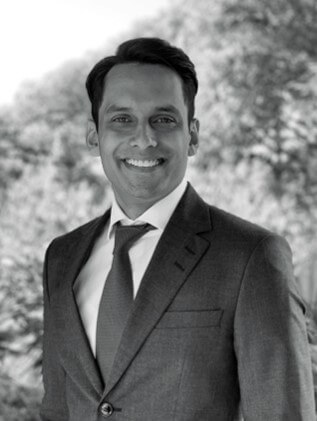2020 has been a year characterised by uncertainty, crisis and change. We are still very much in the midst of uncertainty, with crises escalating and change guaranteed. The question is though, what is the extent of the crisis and how significant will the change be?
And critically... what comes next?
As management consultants, we have been intimately involved with both business and government in formulating strategy and developing policy that responds contextually to the needs of our stakeholders. Our clients (or anyone for that matter) who’s involved in building, growing and sustaining the economy, spends time envisioning the future while drawing from the past to inform and colour it. The resources we allocate today are in response to our understanding of the context that we are in, and the future that we wish to create.
Right now, however, the present, the future, and the path towards it is more unclear than it has been in recent memory. We are in uncharted territory with no reference to draw from. This uncertainty makes us uncomfortable, however, it forces us to look more deeply into reality, letting go of long held perceptions and allowing us the opportunity to find new pathways.
It was Winston Churchill, certainly a man from another era, who said, "never let a good crisis go to waste". The time to question, to consider and to respond is now - we must make the most of the opportunities that these crises have presented us with.
In doing so, we should take stock of our present situation and the path we've been travelling to get to it. Perhaps our reading of today needs to go back a bit further than yesterday for us to make sense of our present reality and to find the pathways needed to unlock a more sustainable future.
In our reading, there are certain realities - mostly structural in nature - that have precipitated and given rise to the challenges we face today; predicted by those with common sense and foresight, and is the inevitable outcome of this collective reality that humanity has built. Built on three foundational, connected yet distinct elements, these include:
- Hyper-connectedness,
- Structural inequality, and
- Ecological breakdown.
The modern world, with its core system of rules, values and beliefs has been evolving from the initial drivers of colonialism and imperialism, with the essence of these practices still echoing around us. In our pursuit of resources to drive economic output, creating and transferring wealth and exerting economic dominance - we have scoured the world for resources and left our presence felt, often at the expense of indigenous societies, cultures and ecologies. The often anthropocentric approach taken toward development has left our biodiversity and environment under threat, with the effects of pollution and climate change becoming a key concern for all life on earth.
Our hyper-connectedness has resulted in a world where the spread of anything - ideas, pathogens, people - both good and bad can be rapid; almost instantaneously spread across the world, challenging the status quo and creating chaos, yet simultaneously opening opportunities for which new pathways can be formed.
Similarly, the structural inequalities that have been hundreds of years in the making, through slavery and established patterns of racism and class structures have found expression in discontented communities globally.
It is an incontrovertible reality. What we have witnessed in 2020 is a confluence of these factors, highlighting the present weaknesses, failings and limitations of our present structures.
Will 2020 force us to rethink and reposition ourselves to create a more sustainable and equitable world, or will we continue down this path that is becoming increasingly disconnected from reality?
How will business models need to change to meet the new normal that must be established? Are our businesses ready for a world of greater flexibility, increased localism and decentralisation, and increased focus on sustainability and equitability?
AIA is committed to offering our views and providing a voice, which will include a series of pieces on how we view these changes and their impact on business, and what can be done to position to benefit from these shifts.
Are you prepared for what comes next?
Oct 2020 Strategy Covid19 transformation digital
